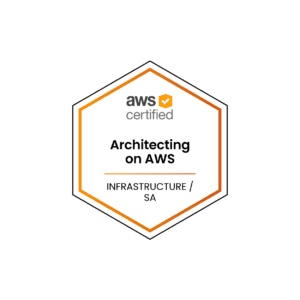
Login / Register
- Courses
Explore Level
Explore Product
Explore Category
- Certifications
- Room Rental
- Highlights
- Contact Us
- Courses
Explore Level
Explore Product
Explore Category
- Certifications
- Room Rental
- Highlights
- Contact Us
Login / Register

We’ve all been there—sitting at a café, airport, or library, happily sipping on coffee while browsing social media or replying to emails using the free Wi-Fi. It’s convenient, right? But have you ever stopped to wonder if it’s safe? Unfortunately, public Wi-Fi hotspots are a goldmine for hackers and cyber intruders. That’s where a Virtual Private Network (VPN) swoops in like a digital superhero. In this article, we’ll explore how a VPN can protect you from intruders when using public Wi-Fi. Let’s keep it light, yet informative.

Public Wi-Fi networks are typically open and unsecured. They may not require a password or may share the same password among all users, making it easy for anyone—including bad actors—to connect.
Hackers love these environments because:
These threats sound scary, but don’t worry—a VPN is here to help.
Learn more about What i MPLS VPN
Let’s start with the basics. A Virtual Private Network, or VPN, is a service that encrypts your internet connection and routes it through a secure server. Think of it as creating a private tunnel in the chaotic world of the internet.

When you use a VPN, it:
Now, let’s see how this works in practice.
A VPN provides multiple layers of protection when you’re using public Wi-Fi. Here’s how it works:
When you connect to a VPN, all your internet traffic is encrypted. Encryption scrambles your data into a code that only your device and the VPN server can understand. So, even if a hacker manages to intercept your data, it’s useless without the decryption key.
Think of it like sending a letter in a locked, unbreakable box. Only the intended recipient (the VPN server) has the key to open it.
When you connect to a VPN, all your internet traffic is encrypted. Encryption scrambles your data into a code that only your device and the VPN server can understand. So, even if a hacker manages to intercept your data, it’s useless without the decryption key.
Think of it like sending a letter in a locked, unbreakable box. Only the intended recipient (the VPN server) has the key to open it.
Hackers performing man-in-the-middle attacks intercept communication between you and the website or service you’re using. A VPN prevents this by creating a direct, secure tunnel for your data to travel through, making interception nearly impossible.
Some hackers use location-based attacks to target users on specific networks. A VPN masks your IP address, making it appear as if you’re browsing from a different location. It’s like wearing a digital disguise to stay anonymous.
Let’s imagine some real-life situations where a VPN can be your best friend.
Not all VPNs are created equal. When choosing a VPN, look for the following features:
Some popular VPN options include NordVPN, ExpressVPN, and Surfshark, but there are many others to suit different needs and budgets.
While a VPN is powerful, it’s not the only thing you should rely on for security. Here are additional tips:
Public Wi-Fi can be convenient, but it comes with risks. From data interception to fake hotspots, there are plenty of dangers lurking. Thankfully, using a VPN can make your browsing experience much safer. By encrypting your data, blocking intruders, and keeping your online activities private, a VPN ensures you can enjoy the perks of public Wi-Fi without the worry.
So, next time you’re sipping that latte at your favorite café, make sure to activate your VPN. Your digital self will thank you.
Stay safe and happy browsing! 😊
AWS Business capacity expansion Cloud Backup and recovery cloud environment cloud server monitoring Cloud Skills Courses data center Education Elastic Cloud Server Elastic IP address flexible deployment horizontal expansion Huawei Huawei ECS Image Online Remote Solution Students virtualization virtual server
WhatsApp Us Any Time:
+6012-641 2009Email Us 24/7 Hours:
marketing@infosyte.comOur Location:
Setiawalk, Puchong
Subscribe our newsletter to get our latest Update & news
Copyright © 2025 | All Rights Reserved.